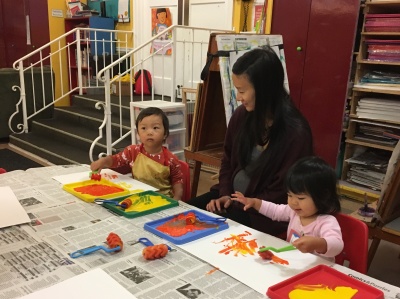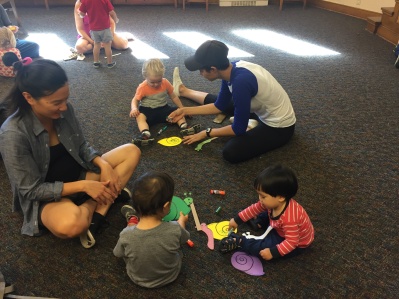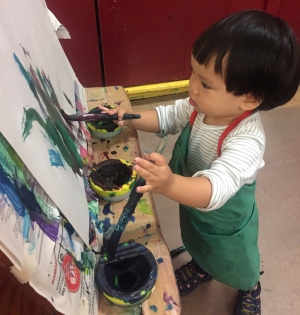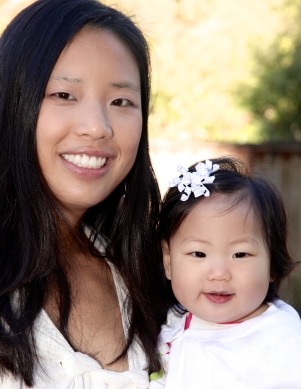
Research studies have repeatedly shown the importance of parent involvement in a child’s education. These studies show that parents’ involvement in their child’s education results in better academic performance, student confidence and motivation (Hoover- Dempsey & Sandlar, 1997). Parental involvement can be defined as the allocation of resources for a child (Grolnick & Slowiaczek, 1994).
According to Grolnick & Slowiaczek (1994), forms of involvement can involve behavioral, personal and intellectual/cognitive:
- Behavioral involvement refers to the presence of parents at school meetings, open houses, conferences. These parental behaviors show the child that his/her parents value school and education. Furthermore, it allows for the parent and teacher to be on the same page when it comes to schooling, homework, goals, etc.
- Secondly, parents may also show a personal involvement which refers to the parents’ emotional experience with their child regarding school, showing the child positive feelings about going to school, encouraging and motivating children to do well and get along.
- Finally, the cognitive/intellectual category of involvement involves exposing the child to educational stimuli at home or in the community. This could include books and puzzles at home, trips to museums or providing practice for skills through tutoring or practice.
All three of these areas of parent involvement allow for parents to be active participants in their child’s education and form partnerships with their child’s school and teachers.

In the first avenue of involvement, the parent becomes an active member of the school community by attending school events, volunteering in the classroom, or helping out with the parent teacher associations. These behaviors help to reinforce the importance of school for the child but also build a relationship with teachers and administrators at the school. In my experience, public schools are very much in need of parent involvement to not only keep the school running through fundraising efforts, but also to provide help in the classroom and add cultural education to students through assemblies, field trips, etc.
The second category of parent involvement is a feeling or affective experience that the child absorbs. Through positive associations with school and a caring supportive stance from parents about education, the child can enter school with less trepidation and more confidence that school will be a fun and rewarding experience. Furthermore, an accepting and positive attitude from parents is more likely to engage teachers to not only develop a relationship with the parents but to engage with their child.
Lastly, in the third area of parent involvement the cognitive/intellectual category, parents are actively seeking and engaging their child in activities outside of school that strengthen their learning experience. Activities such as going to the library, museums, parks, zoos and theaters give children add to children’s knowledge and give them a chance to explore. Exposure to materials such as books, puzzles, blocks, pencils, crayons, etc. give children opportunities to practice and create outside of school. Home becomes an extension of school, where children alongside their parents can have multiple opportunities at new and repeated experiences.

Each parent has to decide what their level of involvement will be at their child’s school. Not everyone can be the PTA president or volunteer every day in the classroom, but each parent can devote time to their children in many ways. As you go through the school year, or get ready for the next one think of ways that you can or would like to be involved in your child’s education and school.

REFERENCES & RESOURCES:
Grolnick, W. & Slowiaczek, M. (1994). Parents’ involvement in children’s schooling: A multidimensional conceptualization and motivational model. Child Development, 65(1), 237-252.
Hoover-Dempsey, K. V., & Sandler, H. M. (1997). Why do parents become involved in their children’s education? Review of Educational Research, 67(1), 3-42.
